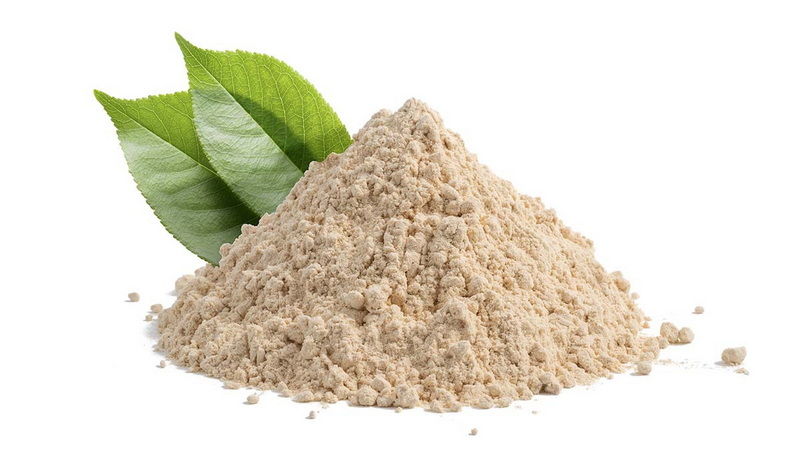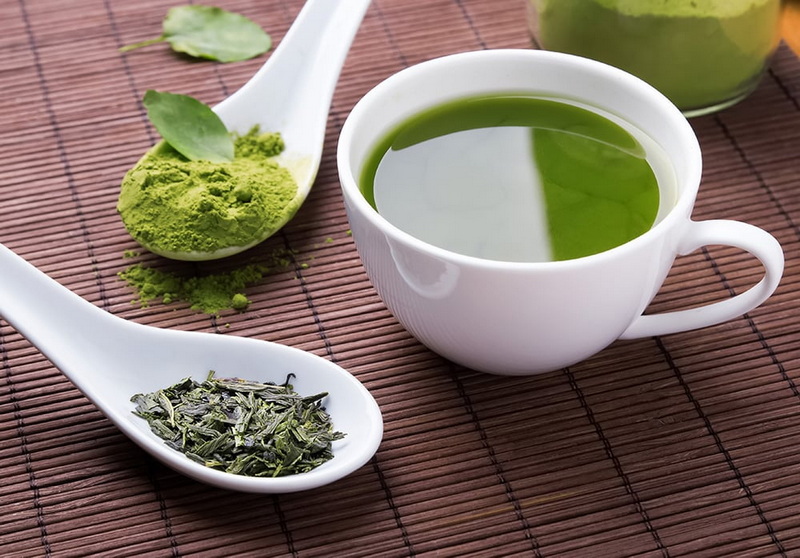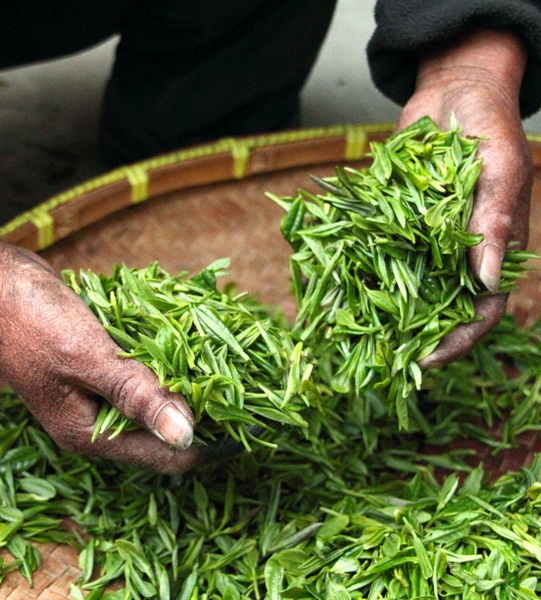Content Menu
● What is Green Tea Extract?
● Health Benefits of Green Tea Extract
● Safety Concerns
>> Potential Side Effects
● Recommended Dosage
● How to Choose a Quality Green Tea Extract
● Lifestyle Considerations
● Scientific Research on Green Tea Extract
● Conclusion
● FAQs
>> 1. What are the main benefits of taking green tea extract?
>> 2. Can green tea extract cause liver damage?
>> 3. How much green tea extract should I take daily?
>> 4. Is it safe to take green tea extract while on medication?
>> 5. Are there any side effects associated with green tea extract?
Green tea extract has gained popularity as a dietary supplement due to its potential health benefits, including weight loss, improved brain function, and antioxidant properties. However, concerns regarding its safety have also emerged. This article explores the benefits and risks associated with green tea extract, aiming to provide a comprehensive overview for those considering its use.

What is Green Tea Extract?
Green tea extract is derived from the leaves of the *Camellia sinensis* plant, which is the same plant used to produce traditional green tea. The extract is concentrated, meaning it contains higher levels of active compounds than brewed green tea. These compounds include catechins, particularly epigallocatechin gallate (EGCG), which are believed to be responsible for many of the health benefits attributed to green tea.
Forms of Green Tea Extract:
- Capsules
- Powders
- Liquid extracts
Health Benefits of Green Tea Extract
Green tea extract is often touted for its numerous health benefits:
- Antioxidant Properties: Rich in catechins, green tea extract helps combat oxidative stress by neutralizing free radicals in the body. This action can help reduce inflammation and lower the risk of chronic diseases.
- Weight Loss Aid: Some studies suggest that green tea extract can enhance fat oxidation and improve metabolic rate, aiding in weight loss efforts. The combination of caffeine and catechins has been shown to boost metabolism by 4-5%, which can lead to increased fat burning.
- Heart Health: Regular consumption may lower LDL cholesterol levels and improve overall cardiovascular health. Research indicates that individuals who consume green tea regularly have a lower risk of heart disease and stroke.
- Brain Function: The caffeine and L-theanine found in green tea can enhance brain function, improving mood and cognitive performance. Some studies have shown that these compounds may help protect against neurodegenerative diseases like Alzheimer's and Parkinson's.
- Cancer Prevention: Some research indicates that the antioxidants in green tea may help lower the risk of certain types of cancer by preventing cell damage. For instance, studies have suggested a link between green tea consumption and reduced risks of breast, prostate, and colorectal cancers.
- Blood Sugar Regulation: Green tea extract may improve insulin sensitivity and reduce blood sugar levels. This effect can be beneficial for individuals with type 2 diabetes or those at risk of developing it.
- Skin Health: The anti-inflammatory properties of green tea extract can also benefit skin health. Topical applications or supplements may help reduce acne and protect against UV damage.
- Oral Health: Green tea extract has been shown to inhibit the growth of bacteria in the mouth, potentially reducing the risk of cavities and gum disease. Its antibacterial properties contribute to better oral hygiene.
Safety Concerns
While green tea extract offers potential health benefits, it is not without risks. The following sections outline some safety concerns associated with its use.
Potential Side Effects
1. Liver Damage: There have been reports linking high doses of green tea extract to liver injury. Symptoms may include jaundice (yellowing of the skin and eyes), nausea, and abdominal pain. Health Canada has noted cases where individuals experienced severe liver damage after using products containing concentrated green tea extract.
2. Caffeine Sensitivity: Green tea extract contains caffeine, which can cause side effects such as anxiety, insomnia, and increased heart rate, especially in sensitive individuals or when taken in large doses. People who are sensitive to caffeine should monitor their intake carefully.
3. Gastrointestinal Issues: Some users report stomach upset or diarrhea when taking green tea extract, particularly on an empty stomach. To mitigate these issues, it is advisable to take the supplement with food.
4. Drug Interactions: Green tea extract can interact with certain medications, including blood thinners (like warfarin), medications for anxiety or heart conditions, and some cancer treatments. It is crucial to consult a healthcare provider before starting supplementation if you are on medication.
5. Pregnancy and Breastfeeding: Pregnant or breastfeeding women should exercise caution when considering green tea extract due to limited research on its safety during these periods. High doses could potentially affect fetal development or milk production.
6. Allergic Reactions: Although rare, some individuals may experience allergic reactions to green tea extracts, which could manifest as skin rashes or respiratory issues.
7. Iron Absorption: Green tea may inhibit the absorption of non-heme iron (the type found in plant foods). Individuals with iron deficiency or those at risk should consider timing their intake appropriately or discuss it with a healthcare provider.

Recommended Dosage
The typical dosage for green tea extract ranges from 250 mg to 500 mg per day. It is advisable to take it with food to minimize gastrointestinal discomfort and enhance absorption. Exceeding this dosage may increase the risk of adverse effects; therefore, it's essential to follow product guidelines or consult with a healthcare professional for personalized advice.
How to Choose a Quality Green Tea Extract
When selecting a green tea extract supplement, consider the following factors:
- Standardization: Look for products that specify the percentage of catechins or EGCG on the label. A standardization of at least 50% EGCG is often recommended for optimal benefits.
- Third-party Testing: Choose brands that undergo third-party testing for quality assurance and purity verification. This ensures that you are getting a safe product free from contaminants.
- Reputable Brands: Opt for well-known brands with positive reviews and a good reputation in the market.
- Formulation: Depending on your preference, you can choose from capsules, powders, or liquid extracts. Each form has its own absorption characteristics; powders may offer faster absorption while capsules provide convenience.
Lifestyle Considerations
Incorporating green tea extract into your routine should be part of a broader approach to health:
- Balanced Diet: Ensure you maintain a diet rich in fruits, vegetables, whole grains, lean proteins, and healthy fats alongside supplementation for optimal health benefits.
- Regular Exercise: Combine supplementation with regular physical activity to enhance weight loss efforts and overall well-being.
- Hydration: Stay hydrated by drinking plenty of water throughout the day; this supports overall health and helps mitigate potential side effects like gastrointestinal discomfort.
- Mindfulness Practices: Consider incorporating mindfulness practices such as meditation or yoga into your routine. These practices can help manage stress levels that might otherwise exacerbate any side effects from supplements like green tea extract.
Scientific Research on Green Tea Extract
Numerous studies have investigated the effects of green tea extract on various health outcomes:
1. Weight Management Studies: Clinical trials have demonstrated that participants taking green tea extract lost more weight compared to those who did not supplement. A meta-analysis indicated that catechin consumption significantly reduced body weight and waist circumference in overweight individuals.
2. Cardiovascular Health Research: Studies show that regular consumption of green tea can lead to improved lipid profiles by lowering total cholesterol levels while increasing HDL (good) cholesterol levels—contributing to better heart health outcomes over time.
3. Cancer Research Initiatives: Research continues into how EGCG affects cancer cell growth in vitro (in lab settings) and in vivo (in living organisms). Preliminary findings suggest that EGCG may inhibit tumor growth through various mechanisms such as apoptosis (programmed cell death) induction in cancer cells.
4. Cognitive Function Studies: Several studies have indicated that regular consumption of green tea correlates with improved cognitive function among older adults—a promising area for further research given the aging population worldwide.
Conclusion
Green tea extract can offer several health benefits but comes with potential risks that should not be overlooked. Individuals considering its use should weigh these factors carefully and consult with a healthcare professional to determine if it is appropriate for their specific health needs.
While moderate consumption is generally considered safe for most people, awareness of personal tolerance levels and possible drug interactions is essential for safe usage.
Incorporating lifestyle changes alongside supplementation will maximize health benefits while minimizing risks associated with high doses or improper use of supplements like green tea extract.

FAQs
1. What are the main benefits of taking green tea extract?
Green tea extract is known for its antioxidant properties, potential weight loss support, improved brain function, possible cancer prevention effects, enhanced oral health, and blood sugar regulation.
2. Can green tea extract cause liver damage?
Yes, there have been reports linking high doses of green tea extract to liver injury. Symptoms include jaundice and abdominal pain; thus monitoring dosage is crucial.
3. How much green tea extract should I take daily?
The recommended dosage ranges from 250 mg to 500 mg per day; it's best taken with food to minimize side effects.
4. Is it safe to take green tea extract while on medication?
It is essential to consult a healthcare provider before taking green tea extract if you are on medication due to potential interactions that could affect treatment efficacy or safety.
5. Are there any side effects associated with green tea extract?
Common side effects include gastrointestinal discomfort, anxiety due to caffeine content, possible liver issues at high doses, allergic reactions in rare cases, and interference with iron absorption.
In summary, while green tea extract can provide various health benefits when used responsibly within recommended guidelines—awareness regarding potential side effects remains critical for safe usage among users seeking its advantages.






























